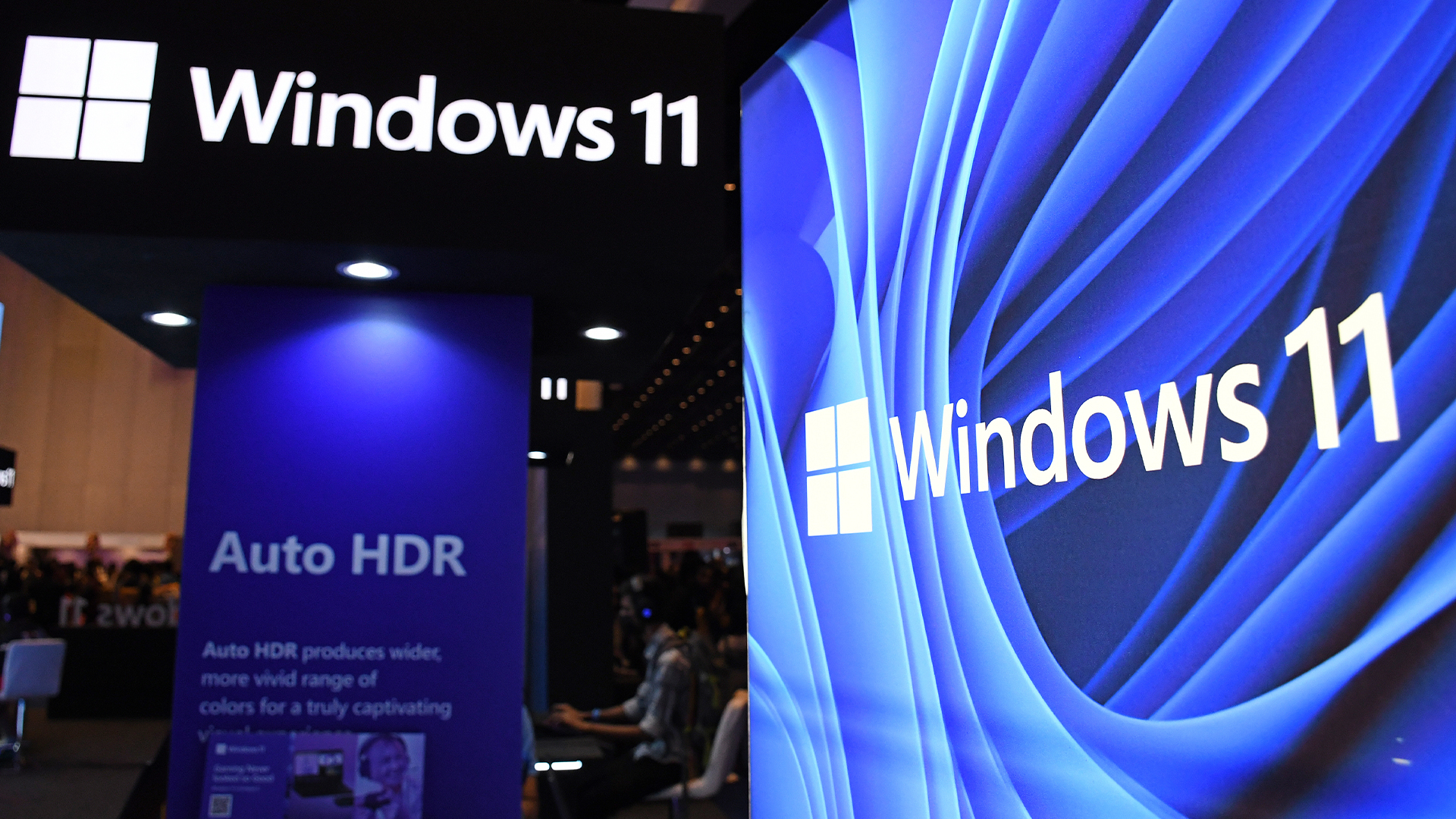Redis insists license changes were the “only way to compete with Amazon and Google” — now it could face a user exodus
Redis sparked controversy when it announced licensing changes in March this year – but the company believes the move was warranted


Redis shocked the open source community when it unveiled a shift to a more restrictive licensing approach earlier this year, but a senior company figure has told ITPro it was the “only way to compete with Amazon and Google” and claw back commercial value.
CEO Rowan Trollope first announced the decision in March, confirming that future Redis releases were to be made available under RSALv2 (Redis Source Available License) and SSPLv1 (Server Side Public License) licenses.
This dual licensing setup equates to a ‘source available’ approach and marked a departure from the company’s Berkeley Software Distribution (BSD) model, which enables developers to use source code even for commercial purposes
The in-memory data store provider justified its decision at the time, claiming that while it had sponsored “the bulk” of development, the majority of commercial sales were being “channeled through the largest cloud service providers”.
Trollope noted that these major players - which includes Amazon and Google - had more or less “commoditized Redis’ investments” and therefore the licensing approach was no longer delivering commercial value.
The company isn’t the first to have altered its licensing scheme, with MongoDB and HashiCorp also having announced changes over the years to the dismay of the open source community.
However, this particular decision sparked controversy among members of the ecosystem, some of whom described the move as a “bait and switch” tactic whereby vendors are “intentionally opaque about their long-term goals”.
Sign up today and you will receive a free copy of our Future Focus 2025 report - the leading guidance on AI, cybersecurity and other IT challenges as per 700+ senior executives
In this instance, the sheer scale of the alleged commoditization by big tech players appears to have warranted drastic action at Redis.
In a statement given to ITPro, Redis’ chief marketing officer Keith Messick defended the move, noting it has since enabled the company to unlock significant commercial gains and to better compete with the aforementioned big tech providers.
“Redis, like many other companies, changed our license because it’s the only way to compete with Amazon and Google,” Messick told ITPro.
“Open source software is important, but traditional OSS licensing makes increasingly less sense in a world where Google and Amazon use their superior monopolistic advantages to make money off of it without giving much back,” he added.
“It’s not just startups dealing with this. Meta’s Llama license basically says ‘Hey, this is open source unless you’re Google, Amazon, etc’.”
Reinforcing Redis’ position, Messick revealed that last week a major US company discovered it had been using Redis for years, but had in fact been paying Google instead.
This could point to a severe imbalance within the broader marketplace, with industry heavyweights being given free rein to lap up financial gains off the back of developer toil.
“They can do things like that because they own the gears and levers of the market,” he added. “The license change was us clawing back one little piece of that.”
“Since we changed the license, we’ve had record revenue growth, but there’s a much more relevant question that I never see asked: what’s Amazon or Google’s revenue from reselling Redis or other open source software? That’s the only question that really matters in my opinion, and good luck getting them to answer.”
Redis commercial gains could be scuppered by growing user exodus
While Messick insisted the move has made Redis more competitive, recent research suggests the provider could be facing an exodus of users.
Research from Percona found 70% of respondents with Redis deployments are looking elsewhere, with a number of leading options already on their radars.
Among these are DragonflyDB, KeyDB, and Skytable, according to Percona. However, the study noted that the “most likely usurper” comes in the form of Valkey.
Unveiled by the Linux Foundation earlier this year, the Valkey Project is a Redis fork developed specifically to provide Redis users with access to an open source alternative.
RELATED WHITEPAPER

Percona’s study found that three-quarters of surveyed users are either testing, considering, or have already adopted Valkey in the wake of the Redis shift.
Notably, the report found that organizations spanning a range of sizes have made the shift away from Redis in recent months. One “clear trend” emerged, however, especially concerning organizations with a broader data footprint.
“While companies of all sizes have embraced or are investigating a transition to Valkey, organizations with larger data footprints were significantly more likely than their smaller counterparts to have already begun the shift,” Percona said.
Around 83% of large enterprises have adopted – or are actively exploring – Valkey.
“Modestly sized” companies are following suit, with 70% of mid-market players making the shift and 77% of small businesses switching to Valkey, or considering the shift.
Cost, Percona found, has been a major contributing factor to whether or not organizations abandon Redis since the licensing changes, with many seeking cost-free options.
However, Interest in the Valkey project could also be due to what Percona described as its “impressive roster” of supporting organizations. When the Linux Foundation unveiled Valkey this year, a host of major industry players including Amazon Web Services (AWS), Google Cloud, Oracle, and Ericsson endorsed the project.
Percona’s study noted that awareness of Valkey has grown significantly since its launch, with nearly two-thirds (63%) of respondents revealing they have been aware of the project since its debut.
Jonathan Wright, Infrastructure Lead at AlmaLinux, which has made the switch to Valkey, told ITPro the transition has been both smooth and made sense given the restrictive nature of the licensing changes.
"Valkey continues the open source legacy of Redis prior to its license change,” Wright said.
“As both a user of Redis (now Valkey) within critical parts of our infrastructure and as an OS which ships it to others, the active development, OSI-approved license, and performance improvements made it a no-brainer for us."

Ross Kelly is ITPro's News & Analysis Editor, responsible for leading the brand's news output and in-depth reporting on the latest stories from across the business technology landscape. Ross was previously a Staff Writer, during which time he developed a keen interest in cyber security, business leadership, and emerging technologies.
He graduated from Edinburgh Napier University in 2016 with a BA (Hons) in Journalism, and joined ITPro in 2022 after four years working in technology conference research.
For news pitches, you can contact Ross at ross.kelly@futurenet.com, or on Twitter and LinkedIn.
-
 The six biggest security challenges coming in 2026
The six biggest security challenges coming in 2026In-depth What will be the main challenges businesses face in 2026 and what can they do to prepare?
-
 Channel focus: All you need to know about Microsoft's partner program
Channel focus: All you need to know about Microsoft's partner programChannel Focus The veteran OS developer and vendor continues to advance its strategy, particularly in Azure cloud solutions and AI
-
 ‘1 engineer, 1 month, 1 million lines of code’: Microsoft wants to replace C and C++ code with Rust by 2030 – but a senior engineer insists the company has no plans on using AI to rewrite Windows source code
‘1 engineer, 1 month, 1 million lines of code’: Microsoft wants to replace C and C++ code with Rust by 2030 – but a senior engineer insists the company has no plans on using AI to rewrite Windows source codeNews Windows won’t be rewritten in Rust using AI, according to a senior Microsoft engineer, but the company still has bold plans for embracing the popular programming language
-
 Microsoft Excel is still alive and kicking at 40 – and it's surging in popularity as 82% of finance professionals report ‘emotional attachment’ to the spreadsheet software
Microsoft Excel is still alive and kicking at 40 – and it's surging in popularity as 82% of finance professionals report ‘emotional attachment’ to the spreadsheet softwareNews A recent survey found Gen Z and Millennial finance professionals have a strong “emotional attachment” to Microsoft Excel
-
 Google CEO Sundar Pichai thinks software development is 'exciting again' thanks to vibe coding — but developers might disagree
Google CEO Sundar Pichai thinks software development is 'exciting again' thanks to vibe coding — but developers might disagreeNews Google CEO Sundar Pichai claims software development has become “exciting again” since the rise of vibe coding, but some devs are still on the fence about using AI to code.
-
 Microsoft’s Windows chief wants to turn the operating system into an ‘agentic OS' – users just want reliability and better performance
Microsoft’s Windows chief wants to turn the operating system into an ‘agentic OS' – users just want reliability and better performanceNews While Microsoft touts an AI-powered future for Windows, users want the tech giant to get back to basics
-
 Microsoft 365 price hikes have landed the tech giant in hot water
Microsoft 365 price hikes have landed the tech giant in hot waterNews Australian regulators have filed a lawsuit against Microsoft for allegedly misleading users over Microsoft 365 pricing changes.
-
 GitHub is scrapping some Claude, OpenAI, and Gemini models in Copilot – here's what you need to know and what alternatives are available
GitHub is scrapping some Claude, OpenAI, and Gemini models in Copilot – here's what you need to know and what alternatives are availableNews GitHub Copilot users are urged to switch to the newer models following the retirement cut-off
-
 Microsoft issues fix for Windows 11 update that bricked mouse and keyboard controls in recovery environment – here's what you need to know
Microsoft issues fix for Windows 11 update that bricked mouse and keyboard controls in recovery environment – here's what you need to knowNews Yet another Windows 11 update has caused chaos for users
-
 Windows 10 end of life could create a major e-waste problem
Windows 10 end of life could create a major e-waste problemNews The study marks the latest Windows 10 end of life e-waste warning